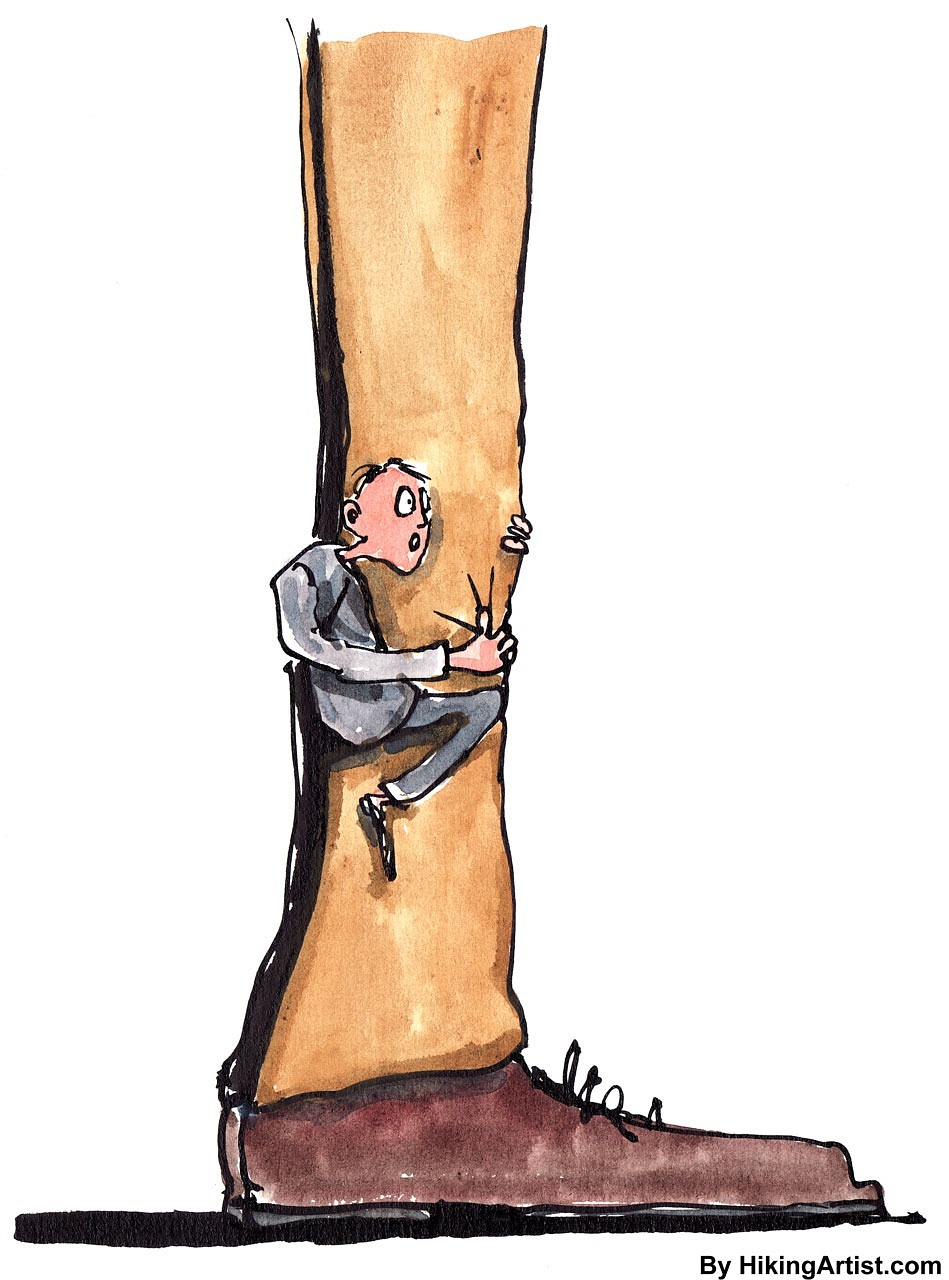- –Paul Hawken
Indictment Charges Michigan Tax Attorney (Former KPMG Senior Manager) With Embezzling $6.5 Million From Client Who Hired Him To Settle IRS Debt
“Tax the Rich” Protesters Descend on the Hamptons
“How Much Frustration Can You Deal With?” And that’s a question that everyone has to ask themselves. Yes, working with people involves frustrations. Most of the time, I’d like to think that those frustrations are minor. Maybe they even become a source of some good-natured laughs. I actually know a few past co-workers with differences that we were able to turn into some fun moments.
Over two years ago, the Covid-19 pandemic upended life as many people know it. Recent changes have included new health precautions, mask mandates, and supply chain shortages. Along with changes to day-to-day life, Covid-19 caused widespread illness and many deaths. What’s especially challenging is that almost everyone has been expected to live life and work as normal during a time when life feels anything but normal.
'I spent years in a job I hated. Here's how I finally got the courage to quit.'
U.S. President Lyndon B. Johnson was notoriously ruthless toward his staff
Gaby Hinsliff The former Speaker’s rages, and the actions of those who condoned them, will resonate with so many who endure management by fear
One of the most difficult personalities to work with is the narcissist. Not only do they lack empathy and self-awareness, but they’ll steamroll, gaslight and manipulate others without a second thought in order to get what they want. Rahul Vij, CEO of WebSpero Solutions, described narcissists as “people who feel they’re superior to everyone in knowledge, expertise, skills and capabilities.” He said, “they want praise for everything they do and think their role and efforts are the most important in the organization.”
If you feel intimidated, frustrated and dread going into the office because you be belittled, humiliated, ignored and cut down, you are in a hostile work environment.
Bullies tend to pick on people who, in their minds, pose a threat to them. Their victims, in fact, are often smart, competent, and self-assured, and they may also be highly effective at collaboration and team orientation — something the bully boss typically is not.
Bullies often go after employees who are liked by their supervisors and praised for their work. They typically have poor coping skills, and they mask their insecurities by victimizing others.
Bully bosses often pick victims who have strong morals and integrity, or whose values conflict with those of the bully. As happened with my friend, bully bosses often target those who are new to an organization.
Over the years as an organizational psychologist, I have encountered bully bosses, and they typically display these behaviors:
- Question commitment, adequacy. Bully bosses disparage opinions and ideas suggested by their victim. They blame victims for work issues and take credit themselves for successes.
- Undermine projects, work success. They set victims up for failure, withhold essential information, micromanage in ways that undercut, and interfere with the success of assignments.
- Gossip. Bully bosses will go to great lengths to paint their victims in a bad light. Sometimes, they pretend to be a concerned ‘friend’ who wants to help the victim through a situation, but then they use the information against the person, or purposely lie to damage their reputation.
- Verbal abuse and intimidation. They humiliate their victims in front of others. They shout, swear, unfairly criticize, make sarcastic remarks, threaten, berate, and ridicule.
No more working for Jerks: Tough Bosses Are Inclusive but Bullies Isolate and Exclude People
Many times people do not realize that their boss is bullying them. Instead, they believe that they have a tough boss or one that simply pushes their employees to get results. But it is important to be able to identify workplace bullying because it can have significant consequences.
Bullies do no want to see you succeed because if you do, they will lose control over you. As a result, they may punish you for mistakes that are not yours or bring up past mistakes in order to shift blameduring a discussion.
They also may make it impossible for you to apply for a promotion, a transfer or additional training. They may even over-control or micromanage your work or projects. More manipulative bullies will promise you promotions or raises to get you to work extra, but then never deliver on those promises.
Reading between the lines as a bullying boss might set unrealistic deadlines that are sure to cause failure. They also might change the guidelines causing extra work or withhold necessary information.1 They do these things to exert their power and control of the situation.
A tough boss does not coddle people or tolerate excuses, but they are also willing to roll up their sleeves and help get the job done.
The tolerance for dealing with jerky bosses is decreasing
Last week HR magazine unveiled its 2022 HR Most Influential (HRMI) rankings aboard the HMS Belfast.
Now in its 16th year HR Most Influential, this year in partnership with MHR, acknowledges the HR practitioners and thinkers who go above and beyond the day job to advance the HR profession and share best practice with the wider HR community.
Whistleblower Richard Boyle’s Public Interest Defence Hearing Set
New Attorney-General Mark Dreyfus will be in a situation of total irony when later this month the Commonwealth Director of Public Prosecutions demands that a minor public servant, who blew the whistle on the Australian Taxation Office’s bad practices, be put on trial
Dreyfus vs Dreyfus looms in ATO whistleblower case against Richard Boyle by ROBERT GOTTLIEBSEN
David Bromwich watches Top Gun and is repulsed by the stink of its catchphrases and righteous slogans
ALSO, IT’S DELICIOUS: Study explores the effects of eating dark chocolate on the brain.
This isn’t the influencer generation.
This isn’t the cancel generation. This isn’t even the TikTok generation. This is the generation of sensibility. Preceding generations have idolized the unrealistic, prioritizing aspirational objectives, and often overlooking basic elements like humanity, our planet, and at times the truth for the sake of self, innovation, wealth, and immediacy.
In a newly released report, we see a new, globally unified generation on the rise that is set on course correcting and getting our world back to basics. They want to solve humanity’s most glaring issues, they desire safety, value realism and are making sensibility the new standard. Their pragmatism will power the world.”
Reports of nearly 40% rise in bankruptcy in first half of 2022
STEVE HAYWARD: Net-Zero and the Fall of Boris Johnson.
The hot race to replace Boris Johnson as Prime Minister of Britain coincides with a record-breaking (though brief) heat wave that is summoning all of the usual clichés about climate change. But most Britons seem to be treating the heat with a shrug, understanding that heat waves sometimes come with what used to be known as “summer.”
Less recognized in the heat of the moment is the role extreme climate policy has played in the downfall of Johnson. The dominant narrative is that Johnson alienated his Tory colleagues in the cabinet and on the back benches with his hypocritical violation of Covid rules in his private parties, along with some scandal-ridden appointments, while the larger public soured on Johnson’s foolish embrace of draconian lockdown restrictions, along with a tax and fiscal policy one might have thought Johnson pinched from the Labour Party.
But the media, and even most Tory leaders, are reserving hushed tones for the role of Johnson’s fanatical embrace of “Net-Zero” energy policy (meaning a carbon-free energy supply by the year 2050). The energy policy of the Johnson government was indistinguishable from what Jeremy Corbyn’s Labourites would have imposed had they won the 2019 election.
Possibly because Britain was on tap to host the U.N.’s annual climate shakedown (known as COP 26) in Glasgow in 2021, Johnson somehow thought he had to be a “climate leader,” pledging among other reckless things to close all of Britain’s coal-fired power plants by 2024. Coal plants scheduled for closure this fall are now going to be kept online, even as the International Energy Agency in Paris recommended this week that Europe as a whole burn more coal on account of the soaring price and scarcity of natural gas—a scarcity that is entirely the political creation of western European nations that thought Russia was an honest and reliable partner that would supply the right amount of natural gas while Europe persisted in its fanciful green dreams of running their economies on windmills.
It’s quite a fall for Boris Johnson, who spent his salad days writing car reviewsfor Britain’s edition of GQ magazine and making guest appearances on the BBC’s motoring-themed show until last year, when he “spelt out the revolt against modernity that lies at the heart of climate-change alarmism when he used his speech at COP to complain about the invention of the steam engine. That contraption, which gave rise to the Industrial Revolution itself, was a ‘doomsday device’ that started the clock ticking on the eco-calamity we currently face, he madly said. And this is a PM who claims to stand up for British history and British greatness.”


